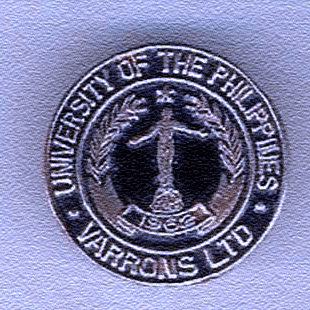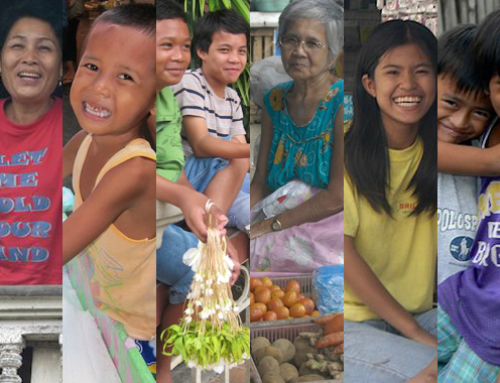The controversy surrounding genetically modified organisms (GMO) has reached the campus of the University of the Philippines Los Banos (UPLB) early this year when a group of Greenpeace activists vandalized a GMO field trial. To clarify some of the issues regarding GMO, we contacted Saturnina “Nina” Halos (Batch ’64) who is one of the experts in this area. Tudla caught up with her while she was travelling in California and Southern America.
Nina is currently a consultant on biosafety at the Bureau of Plant Industry (BPI) and at COCAFM of the 14th Congress of the Philippines. She has been the chair of the Biotechnology Advisory Team at the Department of Agriculture in the Philippines since 2002. She is the Executive Vice President of Amichem Corporation based in Los Baños, Philippines. She held various academic and administrative positions at UP (Los Banos and Diliman) and at De La Salle University in Manila. She served as a consultant to various agriculture-related projects in the Philippines and other countries. (To see more details about Nina’s career highlights, please see the boxed section in page 2 of this post. Visit the Varrons Bibliography page to look at some of her scientific publications.)
Nina obtained her bachelor’s degree in agriculture (plant breeding) as magna cum laude from the University of the Philippines and her doctoral degree in genetics from University of California Berkeley.
You describe your current work as an advocate for GM crops and as a consultant on agricultural biotechnology policy in the Philippines. What exactly does this kind of work entail? To what extent do you interact with government agencies/politicians/private sectors/non-government organizations?
As a consultant to the Department of Agriculture (DA), I provide technical advice on policy in biotechnology and help design and implement the programs that implement such policies. When the DA decided to adopt modern biotechnology as a tool to modernize Philippine agriculture, I designed the DA biotechnology program with 4 components: policy development, capacity-building, applied research and information, education and communications. One such policy is the establishment of a regulatory policy for GM crops. So, the DA program gave support to establish the regulatory system by funding extensive policy consultations among implementing agencies, affected sectors – farmers, scientists, food processors, commodity importers, NGOs and the general public, funding training programs to build the capacity of the regulatory agencies, funding research to develop new GM crops as well as comply with regulation by public institutions and fund IEC programs. In all these activities, I usually serve as resource person to explain modern biotechnology and the regulatory system, review research project proposals for possible funding and design the training programs for regulators. I also review decisions made by the BPI biotechnology core team on the applications for biosafety permits. The Philippine GM crop regulatory system is recognized by the APEC as a model for developing economies and I believe as the main technical advisor in its development, I did help very much in its development.
I work closely with the Office of Policy and Planning, DA and the Biotechnology Core Team, BPI. I also served as a technical consultant to the Congressional Committee on Agriculture and Fisheries Modernization of the 13th Philippine Congress and serves voluntarily with Cong. Angelo Palmones of AGHAM. In relation to these, I drafted a bill on biotechnology development which was filed in the Senate by Sen Angara in the 13th as well as 14th Congress and filed by his son, Dado Arroyo and Angelo Palmones in the Lower House in the 14th Congress.
I am a member of the Board of Directors of the Biotechnology Coalition of the Philippines (BCP) an NGO. We implement an advocacy program for modern biotechnology where we give seminars on modern biotechnology to LGUs, schools, youth organizations, farmer organizations, Congressional staff and members and other groups. We also run training program on modern biotechnology and regulations of GM crops.
You have been in the academe as a professor and as a principal investigator/researcher and as administrator. How do you compare your current line of work with your previous academic jobs?
My current work has a wider and greater impact specifically on Philippine agriculture and on the economy as a whole. Having helped established a GM crop regulatory system which provided access to GM corn by Filipino farmers, I share the satisfaction with DA officials in noting that GM corn Filipino farmers gained and additional income of more than P4 billion in the first 6 years and the same amount annually when 400,000 has of GM corn has been planted in a year. We are hoping to deliver more GM technologies in the near future with the expectation that these technologies will help increase farmers’ profits, reduce pesticide use, reduce adverse environmental impact of agriculture and reduce incidence of Vitamin A deficiency especially among the poor.
Nevertheless, my previous jobs as educator and researcher gave me respect from the public and policy makers and the confidence and necessary expertise to provide appropriate technical advice on biotechnology.
I would like to say though that my mission as a scientist is to push for the adoption of modern technologies to improve Philippine society. Hence, I established the DNA Analysis Laboratory at UP Diliman and worked towards the acceptance of DNA evidence by the Supreme Court.
Emil Q Javier, the President of the National Academy of Science and Technology in the Philippines, wrote in the March 26 online issue of The Manila Bulletin announcing the soon-to-be-released transgenic eggplant as the first Pinoy GMO crop. Some people may be surprised and wonder, perhaps naively, why the Philippines did not use rice (being the staple crop) as the flagship transgenic crop instead of eggplant. Is there an explanation for this? Is there a projected timeline for the Philippines to commercialize GMO rice products containing desirable traits (e.g., Golden rice).
There are 4 GM crops nearing commercial release being developed by Philippine public institutions: delayed ripening papaya, Bt eggplant, Bt cotton and Golden rice. I am not sure which one will be released first but since all have demonstrated the effectiveness of the transferred traits, it shall depend on which GM crop will be first to develop the full regulatory package.
Last Updated on April 11, 2021 by Tudla_Admin


















[…] You can read a brief conversation of Tudla with Nina in this link. […]